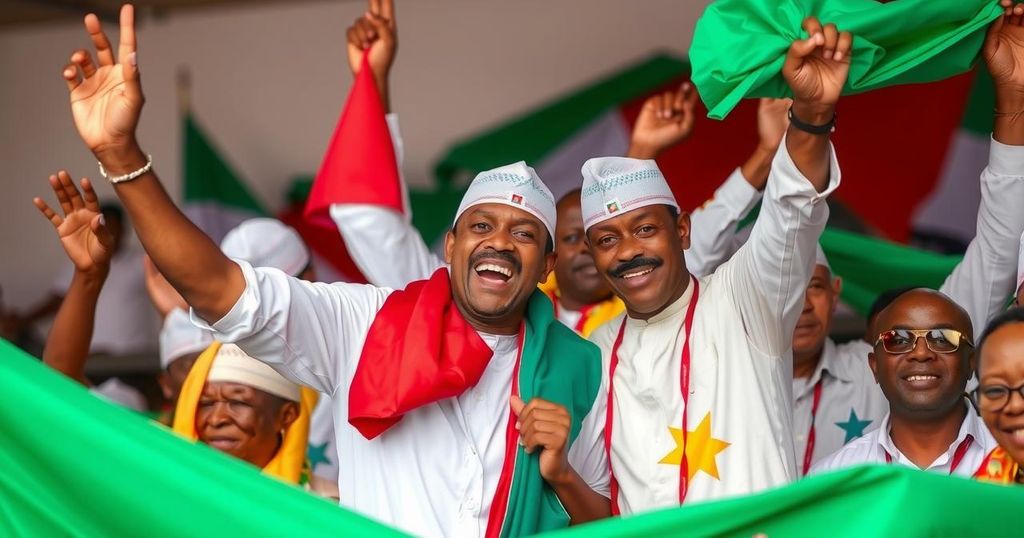Chad’s Ruling Party Achieves Majority in Controversial Election Amid Opposition Boycott

Chad’s ruling party, MPS, won a majority in a parliamentary election boycotted by opposition parties. The government claims this election represents a transition towards democracy, despite allegations of a lack of transparency. Following Deby’s rise to power after his father’s death in 2021, Chad is realigning its international affiliations, notably distancing itself from France while dealing with ongoing security threats.
Chad’s ruling Patriotic Salvation Movement (MPS), led by President Mahamat Idriss Deby, has claimed victory in the recent parliamentary election, obtaining 124 out of 188 National Assembly seats. The election, boycotted by numerous opposition parties led by Succes Masra’s Transformateurs party, reportedly saw a voter turnout of 51.56%. Despite the opposition’s claims of a lack of transparency, the government presents the results as a significant step towards democracy. This election follows Deby’s ascension to the presidency in May, after he took control following his father’s death in 2021 during an armed conflict.
The National Elections Management Agency (ANGE) announced that 38 different political entities will have representation in the new assembly. However, specifics regarding the distribution of seats among non-MPS representatives remain unclear. The opposition, accusing the election of being rigged, boycotted the process, asserting it was not a legitimate path to democracy. Deby’s presidency has witnessed a notable shift in Chad’s international relations, notably severing military cooperation with France and indicating a pivot in alliances towards other global powers, such as Russia.
In recent developments, the Chadian government disclosed an attempted attack on the presidency, characterizing it as an effort to undermine stability in the nation. Such incidents reflect ongoing tensions in the region and illustrate the precarious political landscape under Deby’s administration. Citing these events, the government reaffirms its resolve to maintain order and secure governance amid internal and external challenges.
The political landscape in Chad has been tumultuous, especially in the wake of President Mahamat Idriss Deby’s rise to power following his father’s assassination in 2021. This election is part of a controversial transition to democracy, as Deby had previously described this path following years of military rule. However, the absence of opposition participation has raised questions regarding the legitimacy of the election process. Deby’s move to distance Chad from France and align with Russia coincides with broader regional trends where several nations have shifted their military alliances as a response to colonial legacies and perceived neocolonialism.
In summary, the MPS’s victory in the parliamentary election amidst an opposition boycott sparks concerns about the electoral integrity and prospects for democracy in Chad. President Deby’s government continues to assert the election’s legitimacy, while simultaneously navigating complex geopolitical shifts, including severed ties with France. The situation calls for close scrutiny as the legitimacy of Chad’s political transition remains under challenge from both domestic and international observers.
Original Source: www.dw.com







